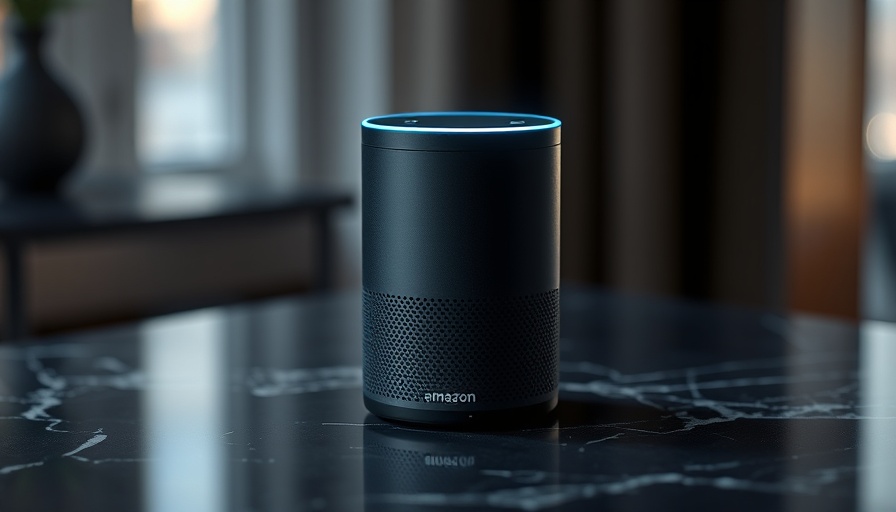
Amazon's Privacy Concessions in the Era of AI
Starting March 28, 2025, Amazon will change how it handles voice recordings from Echo devices, sparking significant concern over user privacy. As part of the rollout of a generative AI version of Alexa, dubbed Alexa+, Amazon will no longer allow users to disable the sending of voice recordings to its cloud, thereby enforcing a shift in the balance between advanced functionality and privacy. This transition marks an important moment for consumers who have welcomed smart home devices into their lives but are now forced to reevaluate the information they share with these platforms.
The Implications of Voice Data Collection
The removal of the "Do Not Send Voice Recordings" feature symbolizes a worrying trend where companies prioritize feature expansion over user autonomy. With the introduction of Alexa Voice ID, which enhances personalized interactions but requires cloud processing, customers must now face the unsettling reality of having their conversations stored and analyzed by the company. Privacy advocates emphasize that without the ability to keep data local, users might inadvertently expose sensitive information as they engage with their devices at home.
Trust Issues: The Historical Context
Historically, Amazon has faced scrutiny regarding its handling of voice recordings. In 2023, the company paid $25 million in penalties due to its mishandling of children’s voice data, reigniting fears about data privacy. The discontinuation of the local processing option heightens those concerns, as users reflect on Amazon’s past missteps with private conversations. With the advent of advanced features comes increased scrutiny as users question whether the benefits of smart technologies justify the loss of personal privacy.
Consumer Reactions and Considerations
Feedback from consumers has been largely negative, with many expressing unease over the idea that their personal conversations will be housed within Amazon's vast cloud infrastructure. Users have taken to online platforms to voice their dissatisfaction, feeling as though they are paying for devices that now infringe on their privacy. For those who rely on these products for essential daily tasks, the implications of this policy shift can lead to feelings of helplessness and frustration.
Alternatives to Cloud-dependent Voice Assistants
As the smart assistant landscape evolves, users seeking non-cloud-dependent options must explore alternatives like Home Assistant’s new Voice PE, which does not subject users to the same privacy concerns tied to large corporations. This shift represents an essential pivot for tech-savvy individuals who value privacy and are willing to trade off some advanced features for greater control over their data.
Steps to Maintain Privacy with Alexa
While the option to prevent data from being sent to the cloud is disappearing, users should still take proactive measures to manage their voice recordings effectively. By regularly visiting Amazon's Alexa privacy settings, users can review and delete their recordings, ensuring that they have less sensitive data available on the platform. Moreover, users can say commands like, "Alexa, delete what I just said," or access the Alexa Privacy page to delete records more comprehensively.
A Future of Voice Engagement: Balancing Convenience and Privacy
The evolution of voice assistants, particularly with the introduction of generative AI features, points toward a future where smart technologies become increasingly ingrained in everyday life. However, this development requires careful consideration of what users are willing to sacrifice in terms of privacy. To ensure a secure environment, consumers must weigh the benefits of personalized voice assistants against the potential risks of data exposure.
Conclusion: Navigating the Future of Smart Devices
As we stand on the brink of a technological revolution in home automation, it’s essential to remain vigilant regarding how companies handle our data. The removal of local processing capabilities places the onus on consumers to navigate their trust in companies like Amazon carefully. It is crucial for individuals to stay informed about changes and continue advocating for privacy protections in an increasingly connected world.
 Add Row
Add Row  Add
Add 




Write A Comment